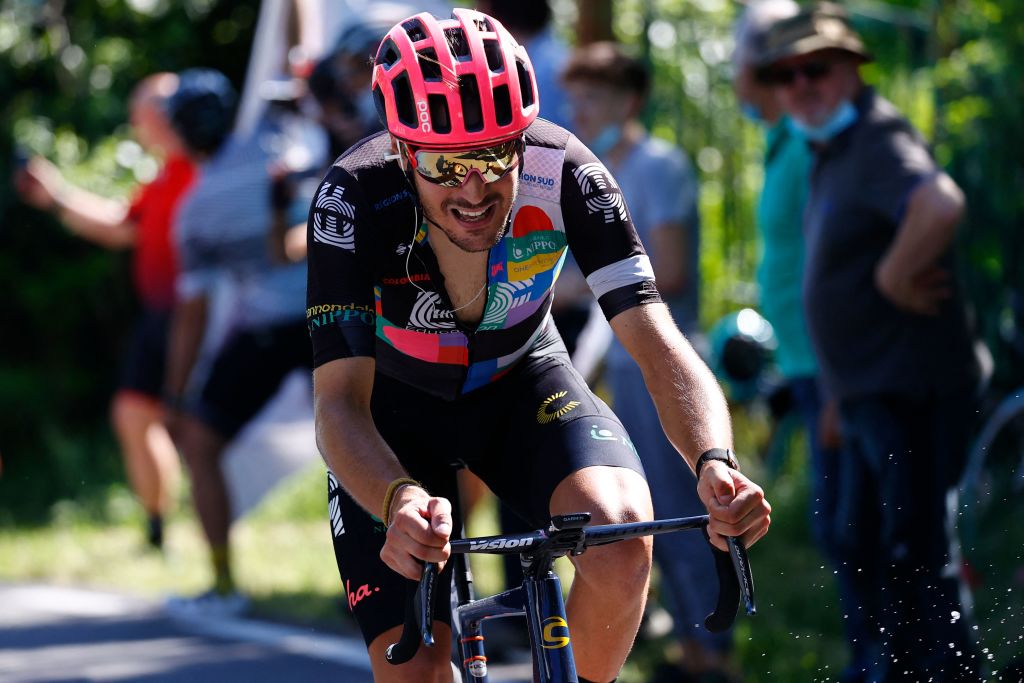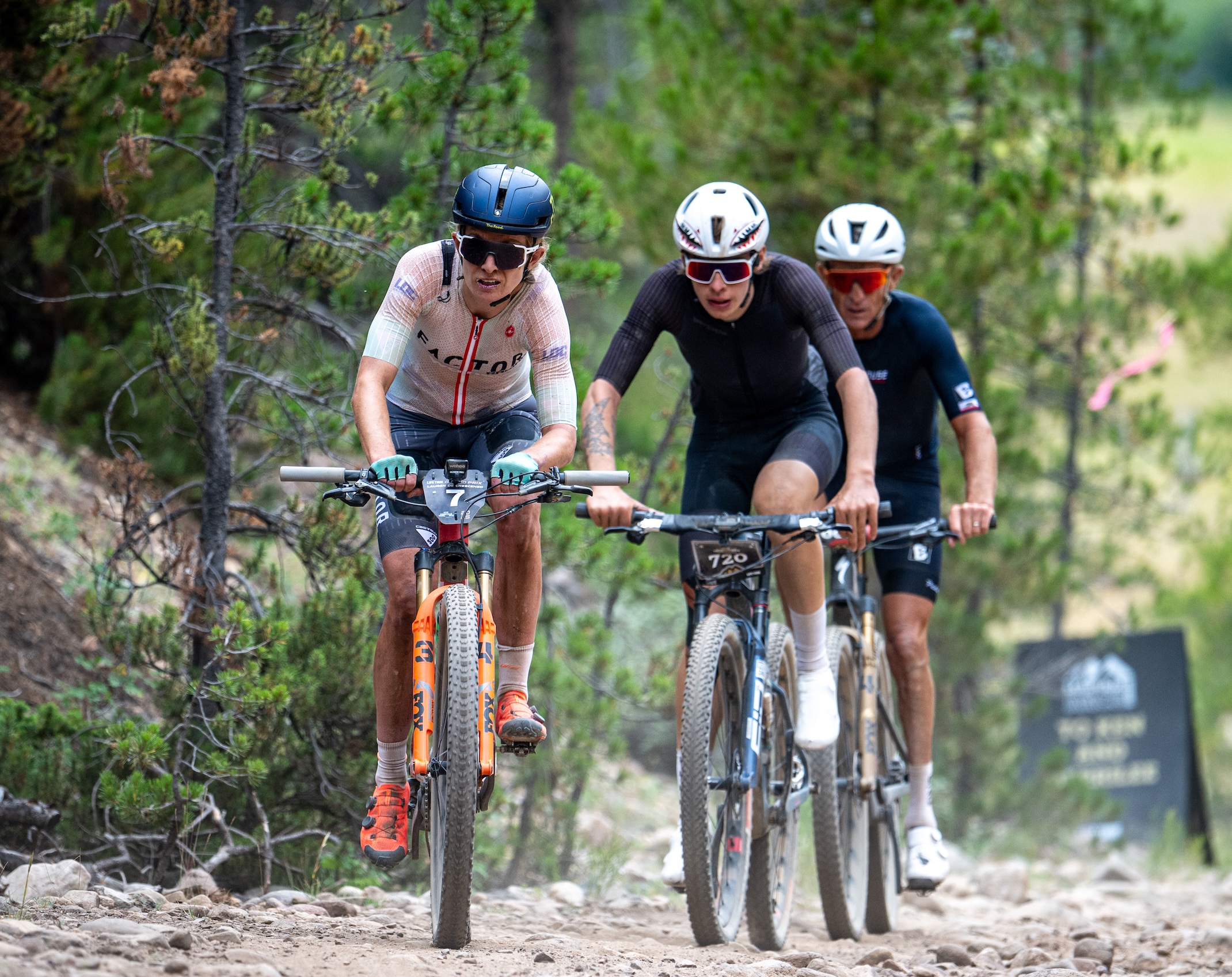Former Flanders winner Bettiol returns to racing roots with Giro d'Italia triumph
27-year-old hopes stage 18 victory lights fuse for more frequent wins

The latest race content, interviews, features, reviews and expert buying guides, direct to your inbox!
You are now subscribed
Your newsletter sign-up was successful
"Cycling teaches you to lose more than to win unless you're called Eddy Merckx" was one of Alberto Bettiol's many memorable soundbites in a press conference where the breakaway victor of stage 18 at the Giro d'Italia revealed his own complicated path to rare – but resounding – triumphs in the sport.
After claiming an utterly unexpected first professional win in the Tour of Flanders two years ago, as one journalist pointed out that the EF Education-Nippo rider was subsequently, and unfairly, labelled in some quarters as the rider who had triumphed in De Ronde but nothing else.
And having soloed to a superb lone victory, just as he did in Flanders in 2019, on Thursday's lengthy trek across the Po Valley in northern Italy, Bettiol recognised that with 'only' three wins to date in his career, he had certainly found it hard, mentally, to find the right approach to success in the sport. However, he insisted he was getting there, and Thursday was the latest proof of that.
"I didn't win Flanders by chance, and the victory there changed my life," the 27-year-old told reporters in Stradella. "And I know what I'm worth and that, at times, I can show it."
"People in the team tell me that I'm a strong racer and the team is always ready to back me up. But I have to unlock my own way of thinking, and convince myself I can win more too, not only when I'm feeling really strong, but also when I'm not having such a great day, too."
That said, victories in the third week of a Grand Tour, when energy levels are sagging across the board in the peloton, often depend as much on staying mentally focussed as they do on brute physical strength, Bettiol pointed out. And after getting in an early – very large – break of 23 on the longest stage of the Giro, he confirmed there were a few moments when he could have thrown in the towel, but soldiered on instead.
One such critical moment came when regaining contact with lone attacker Rémi Cavagna (Deceuninck-QuickStep) on the last of a series of short but punishing climbs, he then dropped the Frenchman to go clear for the win. But another had come when "I could have surrendered when Cavagna first attacked, but I knew I had had permission from the team to be in the break and I wanted to do anything I could to make the most of my opportunities," Bettiol argued. "So I didn't give up."
The latest race content, interviews, features, reviews and expert buying guides, direct to your inbox!
As for the final battle with Cavagna, "I had already made one attack myself on the second last climb, but I knew that Cavagna would be very hard to pull back. So I tried to get him on the climb, because I wasn't so sure I'd have been able to drop him on the flat. Then once I'd caught him, I immediately attacked because that way I thought if he saw me going away ahead of him, it'd crush him mentally."
After finishing second, Nicolas Roche (Team DSM) was one of the first to congratulate the EF-Education First racer with a brief hug as they crossed paths. Roche was obviously disappointed at being defeated, but Bettiol explained that while rivals on the bike, the two were good friends off it, too.
"In the bunch you spend lots of time together, and I have been in Teide doing altitude training with Nico before the Grand Tours," Bettiol said. "He's a great guy."
Referring to a moment when Roche briefly bridged across to Bettiol on the final climb before the Italian pulled away to chase down Cavagna, he explained that, "I asked Nico to help me and he told me he was sorry, he couldn't, he didn't have the strength."
Bettiol – the 12th rider to take their first Grand Tour win at this Giro – had shown some startling progress on the climbs, though, most notably on Wednesday when he acted as vital support for Hugh Carthy after the EF leader began to suffer badly on the upper slopes of the Sega di Ala and Bettiol was strong enough to guide him all the way to the finish.
"I've never been so good on the climbs as this year," Bettiol recognised, "but I've done a lot of training on improving my limits on them. Maybe in other years, I could try to see what I could do with that improvement in a Grand Tour."
For Bettiol in any case, victory in stage 18 of the Giro represented an important step forward in his career. And if in one sense the victory in Stradella, on a day with a route similar to that of Milano-San Remo, was reminiscent of his success in the Classics, in others it was a return – he pointed out – to his roots as a racer.
Back in the Giro this year after a five-year break, Bettiol said that he had "grown up watching the Giro and I wanted to come back to this race so I could win on my home soil.
"I wanted to test my physical and mental maturity as a racer here, in Italy. And while Flanders has a massive symbolic weight in the world of cycling, winning at home is very special and important, too."
Alasdair Fotheringham has been reporting on cycling since 1991. He has covered every Tour de France since 1992 bar one, as well as numerous other bike races of all shapes and sizes, ranging from the Olympic Games in 2008 to the now sadly defunct Subida a Urkiola hill climb in Spain. As well as working for Cyclingnews, he has also written for The Independent, The Guardian, ProCycling, The Express and Reuters.

